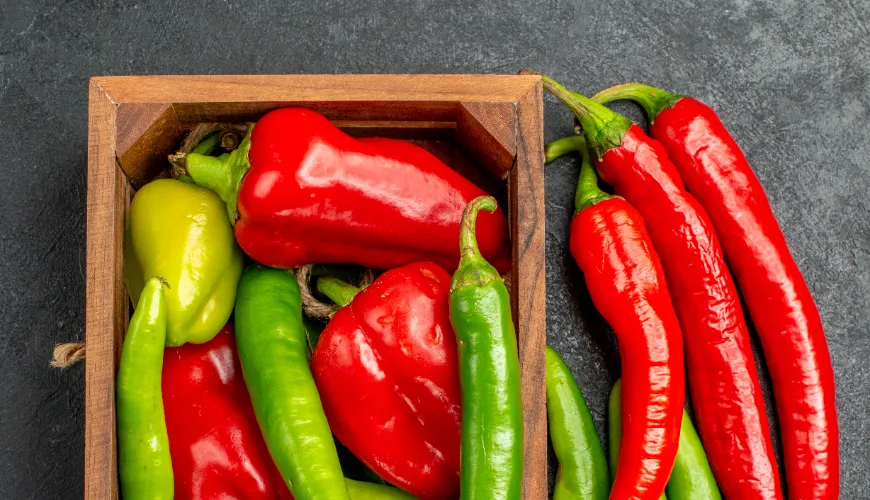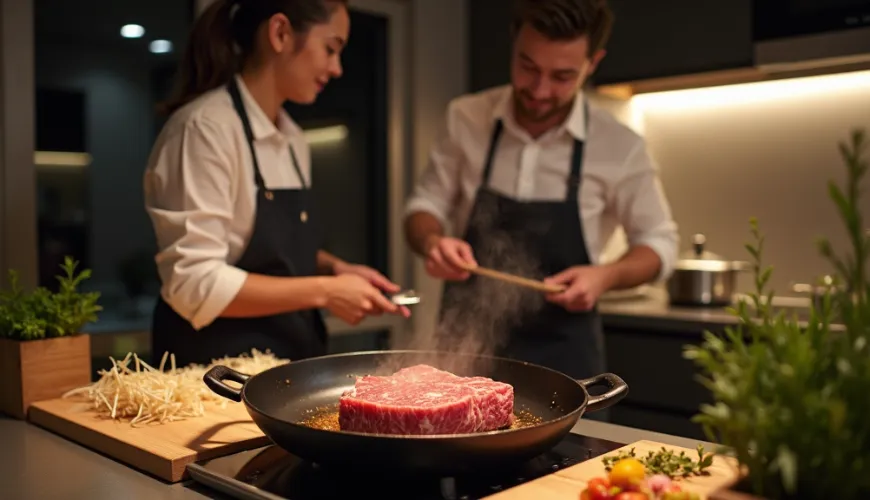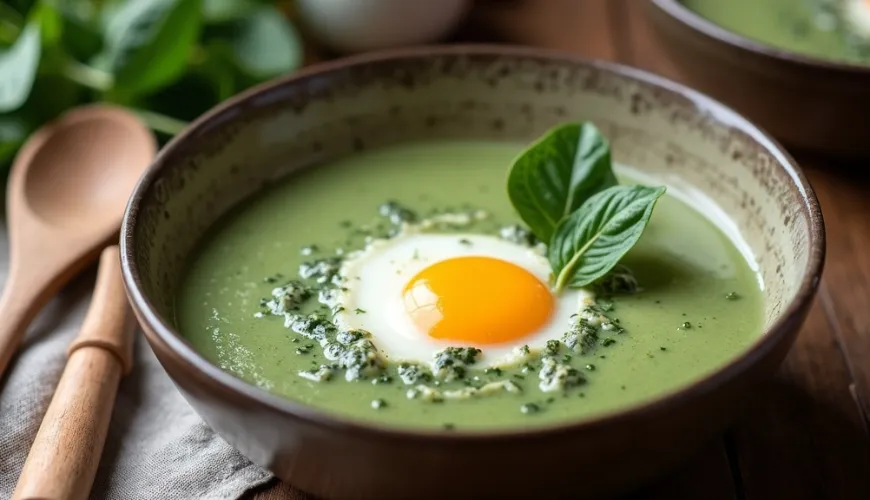
How to Recognize Quality Wagyu and Enjoy a True Experience

Wagyu – The Meat That Redefines Luxury on the Plate
When one thinks of luxurious food, one of the first images that comes to mind for many gourmets is a perfectly cooked wagyu steak. In recent years, this term has become synonymous not only with refined taste and tenderness but also with a completely new approach to cattle rearing and animal welfare based on respect and care. Although wagyu meat is not yet common in Czech kitchens, interest in it is rapidly growing. So what makes wagyu so exceptional that it is considered the highest quality beef in the world?
What Does Wagyu Actually Mean?
The word "wagyu" comes from Japanese, where "wa" means "Japanese" and "gyu" simply "cow". So, wagyu is Japanese cattle, but there's much more behind this designation than just geographical origin. It involves specific breeds—the most famous being Japanese Black (Kuroge Washu)—that are genetically predisposed to create distinctive marbling in the muscle. This fine network of fat within the meat is precisely what sets wagyu steak apart from other types of beef.
Marbling, technically known as "intramuscular fat", is not just an aesthetic feature. Its presence significantly affects the taste, texture, and juiciness of the meat. The fat melts at low temperatures, giving wagyu meat an almost buttery softness and incredible aroma. This combination is what makes wagyu a pure delicacy.
The Secret of Breeding Passed Down Through Generations
One reason why wagyu meat is so expensive is the extreme care taken in raising the animals. In traditional Japanese farms, it is common for each cow to be cared for individually by one farmer who knows exactly what the animal eats, how it moves, and its temperament. In some cases, the cows are even massaged to promote blood circulation and even fat distribution, and music is played to calm the animals and reduce stress. Stress negatively impacts meat quality—and in the case of wagyu, perfect harmony of body and mind is essential.
The feed usually consists of high-quality rice straw, soy, corn, and sometimes even beer. Yes, indeed—some farms use beer to stimulate the cattle's appetite during hot months. Whether this is true or a myth, one thing is certain: the result is meat with a unique structure, tenderness, and flavor profile that is almost impossible to replicate by conventional methods.
Wagyu Steak - An Experience Like No Other
If you ever get the chance to taste an authentic wagyu steak, prepare for an entirely different culinary experience than what you know from classic beef. Wagyu is not grilled like an ordinary steak. Due to its high fat content, it cooks much faster and at lower temperatures. The key is to let the fat gently melt and turn the meat into a juicy, velvety treat.
In Japan, wagyu is often consumed in smaller portions—often as thin slices prepared as sukiyaki or shabu-shabu. In Western cuisines, however, wagyu steak is also served in a classic style: a thicker piece of meat on the grill or pan, accompanied only by salt and pepper to preserve the pure flavor. Although the price of a wagyu steak is significantly higher than regular beef, many people claim that it's worth every bite.
Interestingly, even in the Czech Republic, there are now farms dedicated to breeding wagyu cattle. One example is the Wagyu Besky farm, which combines traditional Japanese methods with local resources. This makes wagyu meat more accessible and sustainable for Central European customers.
Wagyu as Sustainable Luxury?
At first glance, wagyu meat might seem to contradict sustainability principles—after all, it is a meat product with fairly demanding production. But on closer inspection, there are arguments in favor of this exceptionality. Wagyu cattle are raised in small numbers with an emphasis on quality, not quantity. Each animal lives longer, in better conditions, and with minimal stress, reducing the environmental impact compared to intensive industrial farming.
Moreover, thanks to the rich taste and satiation of wagyu meat, smaller portions are often served. It is essentially a "less is more" philosophy—instead of consuming a large amount of average meat, one enjoys a small, unforgettable culinary experience. This approach aligns with the principles of slow food and mindful eating, which aim to promote a more sustainable and ethical way of consuming food.
How to Recognize Quality Wagyu?
On the global market, you'll find different types of wagyu meat, but not everything labeled as such truly corresponds to Japanese quality. The highest quality grades come from Japan and are designated with the letter A (the best being A5). The higher the number, the more marbling and higher the quality. Imported wagyu from Australia or the USA might be cheaper but also less marbled—still often significantly surpassing regular European beef.
When choosing wagyu meat, it's essential to look at the origin, certification, and breeding method. Specialized sellers, like Ferwer, offer products that adhere to ethical and ecological farming principles, providing an ideal compromise between quality and responsible approach.
The Story of a Dinner
A young couple from Brno decided to celebrate their relationship anniversary in a somewhat unconventional way—instead of a classic restaurant, they ordered ingredients for a homemade wagyu steak. After thoroughly studying the recommended procedures, they set out to cook. They heated a cast iron plate on the stove, placed a lightly salted piece of wagyu on it, and within minutes, the apartment was filled with an intoxicating aroma. As they served it, they realized they had never tasted such tender meat before. "It almost melts in your mouth," they noted with a smile. And it's in such moments that one realizes that gastronomy is not just about satiation but about experience.
Wagyu meat is not just an ingredient—it's a story, a tradition, respect for animals and resources. Whether you taste it once in a lifetime or make it a part of your festive meals, one thing is certain—wagyu will change the way you perceive beef.

